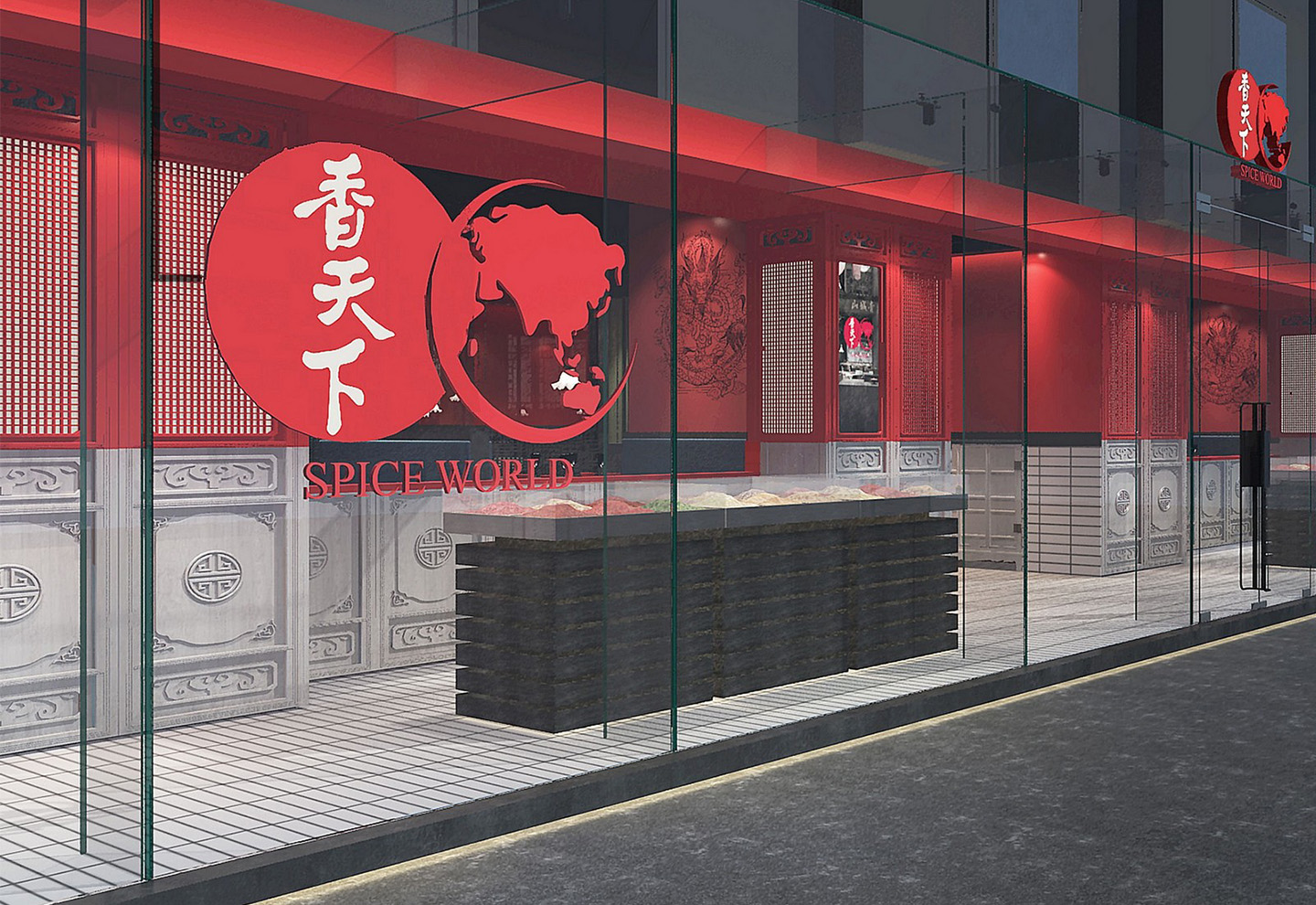
In the field with Spice World
- The Chinese restaurant industry is characterized by intense competition and high employee turnover.
- The hot pot sector, in particular, is plagued by low barriers to entry.
- Spice World, a hot pot chain, utilizes a clear reward system, a unique onboarding process and gamification to capture employee loyalty and ensure quality.
The hot pot is a unique and popular dish in China, thought to date back at least 1,700 years. Although the dish can vary greatly from region to region, its core elements include a broth; various ingredients, such as meats, vegetables, seafood and tofu; and dipping sauces. The ingredients are placed into a boiling pot of broth in the center of the table and, once cooked, are scooped out, dipped in a sauce and eaten. Most of the “cooking” is done by the people eating the hot pot; the chef’s main responsibilities are ensuring quality and preparing the condiments and ingredients.

Eating hot pot can be a fun, communal experience. For hot pot restaurateurs, however, it can be a cut-throat business afflicted by low margins and strong competition. The restaurant industry in China in general is extremely fragmented, very competitive and suffers from high employee turnover. On top of that, the hot pot business faces the added pressure of low barriers to entry; with a pot, heat source, ladle, a table and some benches, almost anyone can start a hot pot restaurant. How can a hot pot business make a place for itself in such a difficult environment?
Spice World (香天下), a high-end hot pot chain founded in Chengdu in 2005, has attempted to address the challenges facing its industry. It has grown quickly and opened over 700 branches throughout China and even overseas. In addition, it has been able to successfully lower its employee turnover rate to a fifth of the industry average.
The broader issue
As industry boundaries increasingly blur and previously unthought-of competitors cross domains (Uber and the taxi business, Amazon and groceries, Google and healthcare), companies need to find ways to set themselves apart from the competition. Spice World’s story illustrates how a company can create core competencies when a natural advantage is not readily available.
Spice World understands that to differentiate itself in an adverse environment, it needs to build up its core competencies in a way that is hard to mimic. It is able to utilize people, rewards, processes and company structure to support its strategy and create a solid organizational design. The core of its strategy is to create a high-end hot pot experience, at scale. Being in the service industry, Spice World understands that people are the backbone of a successful company and that the best dining experience is not possible without trained and motivated staff. To cultivate the best people, Spice World has built a unique corporate culture by utilizing unconventional methods such as an initiation boot camp, gamification, and a radical reward system. And, to ensure this high-quality at scale, it has standardized and created systems and procedures.
People, rewards, processes and structure
In China, workers entering the restaurant industry tend to be low-skilled with little education. Working long hours with low pay, restaurant employees are readily enticed by a marginal pay increase to jump ship, resulting in high attrition rates. The Chinese Hospitality Association estimates the employee turnover rate in the hot pot industry is as high as 15%.
Spice World understands that to provide the best service, it needs to train its employees and motivate them to improve and remain with the company. The hiring, training and motivation of these employees follow a strict system so that quality can be ensured. Some of Spice World’s unique initiatives include:
- Spice World Whaompu Military Academy (香天下黄埔军校): All future employees have to successfully complete a 15-day boot camp before they can work at Spice World. By having the employees live, train and work together day in and day out, the goal of the boot camp is to instill in them the same values irrespective of their background, and acclimatize them to Spice World’s unique corporate environment. Employees are not trained in the day-to-day running of the restaurant, rather they are instilled with Spice World’s principles and values. One of the most important aspects is initiating the employees into the “PK” system, which will dictate their future work life at Spice World.
- Gamification through the “PK” system: PK, which originates from the gaming term “Player Kill,” is used colloquially in China for one-versus-one or team-versus-team competitions. The PK system is the backbone of Spice World’s management system. As during boot camp, employees are put in teams of eight and operate together, almost as a family unit. Every day, different teams crosscheck each other and reward or deduct points. The fundamentals and the correct way to evaluate each other, and the right mentality to adopt (be positive and supportive) are already ingrained in the employees during boot camp. By adding good-natured competition and framing goals and objectives into a game, Spice World seeks to add an element of fun. This appeals to the employees’ competitive nature, playfulness and team spirit.
- A radical reward system: Point 10 of Spice World’s corporate values states: Spice World promises its employees that as long as they persist and work hard, they will also become a successful member of Spice World. In addition to promotions, Spice World thanks dedicated employees by rewarding them with apartments and cars when they have reached a certain position. A chef working in the kitchens, for example, can work his way up from basic chef to supervising chef, then head chef. When a chef has successfully moved up from area head to regional head, he is eligible for a house or car. “Everyone can see the rewards at the top,” Zhu Quan, founder and chairman of Spice World explains. “They can get a house, a car, shares and become a king at their branch. This is a target everyone at the bottom wants to reach.” For employees from low economic backgrounds, it is as if suddenly the sky’s the limit. It is a chance to make it big – if they are willing to work for it.
- A unique management recruitment process: Given the number and spread of its branches, Spice World has understood that it needs to have the best supervisors overseeing each local operation. As a result, it has developed its own set of criteria and evaluation methods when hiring franchisees or managers: “Eat a meal, walk a journey, sleep a night (吃一顿,走一程,睡一觉).”
Eat a meal – Representatives from Spice World share a meal with the candidates and observe how much they appreciate the food and the ambiance of the restaurants.
Walk a journey – This entails going together on an overnight trip with the goal of observing the candidates’ personality and how they deal with stress and unexpected situations.
Sleep a night – Zhu or a member of his team will spend a night with the candidates and observe details such as neatness and cleanliness.
Zhu explains, “Basically, with these three steps, we can understand all we need to understand about a person.”
An inverted organization pyramid: To promote a culture of service throughout the company, Spice World has inverted its organizational pyramid and made its headquarters a service company that supports the various branches. Rather than giving top-down directives on what the branches can or cannot do, its goal is to offer training and business support. In 2009, Spice World’s headquarters renamed itself Spice World Service Corporation. It built an extensive IT infrastructure and created various divisions that provide support to its branches and franchisees.
Spice World is a perfect example of a firm whose strategy, people, rewards, business processes and company structure complement and reinforce each other. In Jay Galbraith’s star model of organizational design, these are the five key elements that shape an organization’s decisions and behaviors. To be effective, all the policies that relate to these elements must be aligned within the organization.
Did it work?
Spice World soon expanded from 1 restaurant in 2005 to 700 at the end of 2017, of which 187 were directly owned stores, 300 franchises and 200 Spice World co-invested restaurants. Franchisees and investors are eager to invest in Spice World since its all-inclusive franchise model means that investors effectively only need to put in capital, and everything else (employees, training, supply chain management, store front design/construction, corporate level support) is carried out by Spice World. Using data collected over time from their existing stores and market research, Spice World is also able to reasonably predict a store’s potential profit and turnover. This is attractive for investors who want to know the potential for returns.
Spice World’s focus on training and rewarding its staff has also resulted in low employee turnover. Compared to the hot pot industry’s average turnover rate of 15%, Spice World’s employee turnover is just 3%.
Takeaways
Spice World has successfully leveraged its unique culture and business processes to create a successful hot pot chain focused on quality at scale. Some key takeaways include:
- People are key, especially in the service industry. Find the right people, train them well, motivate them throughout their tenure, and reward them.
- A company’s strategy, people, rewards, business processes and structure must be aligned to create a consistent message and efficient organization.
- Although organizations might not be able to implement all Spice World’s initiatives – the Whaompu Military Academy, the PK system, its radical rewards system or management hiring practice – the underlying concept could be relevant. Could your organization leverage gamification, introduce a corporate culture to new hires and improve its management practices?
Research Information & Knowledge Hub for additional information on IMD publications
Earlier this month, the European Union began executing its tariffs on China for electric vehicle (EV) imports, yet the dated practice of taxing pro...
The increasing datafication of the workplace is often cast as a means of imposing organisational and managerial control on workers. This reflection...
Case (B) explains the contents of the Holder report, which investigated the diversity, equity and inclusion culture at Uber and ends with Travis Ka...
Case (C) discusses the meeting that showcased the proposed actions following the Holder report recommendations and highlights the concerning respon...
Research Information & Knowledge Hub for additional information on IMD publications
Research Information & Knowledge Hub for additional information on IMD publications
Research Information & Knowledge Hub for additional information on IMD publications
Research Information & Knowledge Hub for additional information on IMD publications
in I by IMD 5 July 2024
Research Information & Knowledge Hub for additional information on IMD publications
in I by IMD 5 July 2024
Research Information & Knowledge Hub for additional information on IMD publications
in Scandinavian Journal of Information Systems July 2024, vol. 36, no. 1, article 2
Research Information & Knowledge Hub for additional information on IMD publications
Research Information & Knowledge Hub for additional information on IMD publications
Research Information & Knowledge Hub for additional information on IMD publications
Case (C) discusses the meeting that showcased the proposed actions following the Holder report recommendations and highlights the concerning respon...
Case (A) recounts Travis Kalanick’s journey through the growth of Uber, highlighting instances of his problematic behavior and the board’s lack of ...
Research Information & Knowledge Hub for additional information on IMD publications
Case (B) explains the contents of the Holder report, which investigated the diversity, equity and inclusion culture at Uber and ends with Travis Ka...
Case (A) recounts Travis Kalanick’s journey through the growth of Uber, highlighting instances of his problematic behavior and the board’s lack of ...






